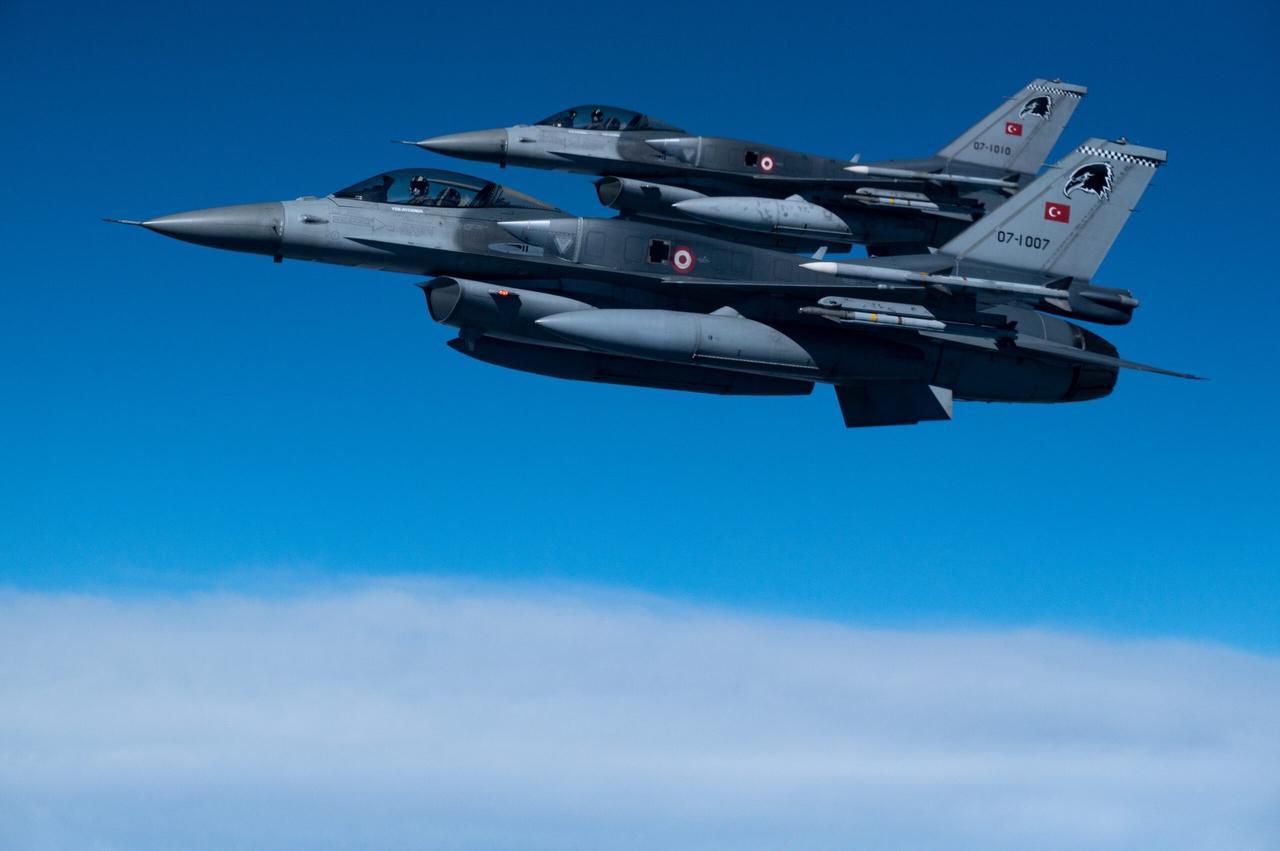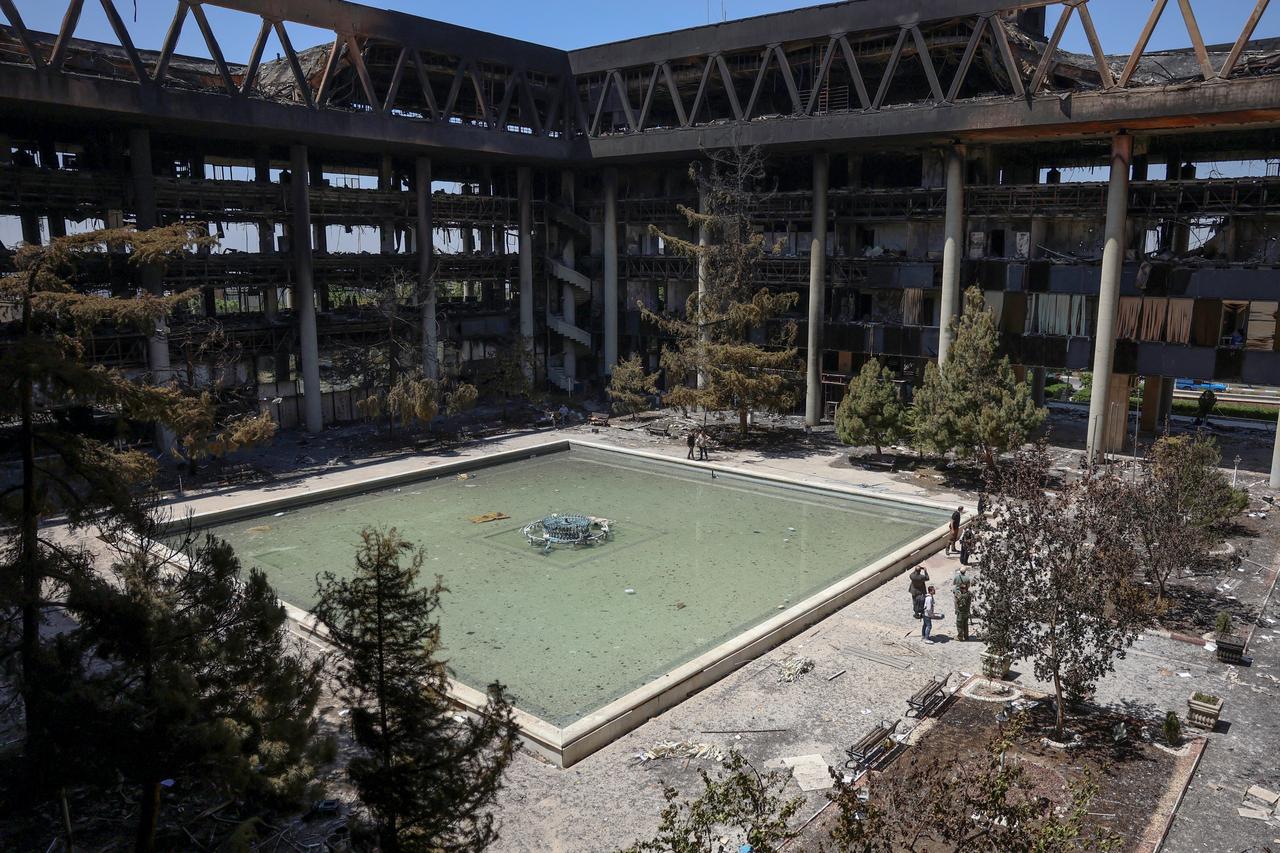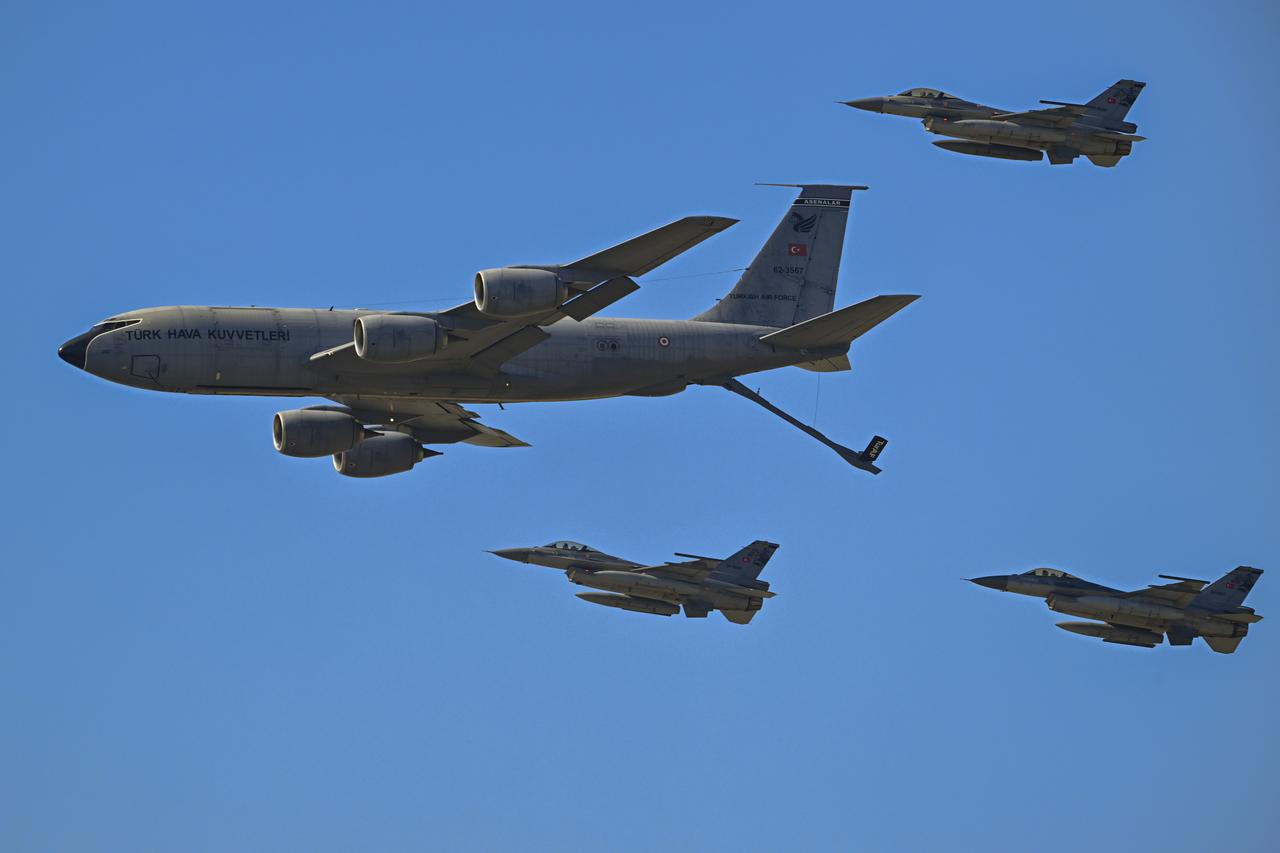
Türkiye's Defense Ministry sources denied Thursday that Israeli aircraft violated Turkish airspace during the first day of airstrikes against Iran.
The ministry sources addressed questions during a weekly press briefing in Ankara following reports of alleged violations.
"Information that Israeli aircraft violated our airspace on the first day of the attack is not accurate," ministry sources said.
"From the first moment of the attack, the air movements of the parties were monitored, and our alarm reaction aircraft took off based on the possibility of Israeli jets violating our airspace and began conducting alarm reaction and air patrol missions within our own borders," sources added.

Ministry sources criticized Israel's military actions across the region, stating that "Israel's aggressive policies toward Gaza, Lebanon, Syria and Iran further disrupt the fragile balances in the region. Israel must immediately abandon the rhetoric and attacks that will further expand the course of the war."
The sources emphasized that necessary measures were increased to protect Turkish airspace and borders when Israeli airstrikes began against Iran.
Ministry sources also noted that Israel's attack on neighboring Iran occurred during a period when negotiations were continuing for a diplomatic solution to Iran's nuclear program issues.
"Israel has once again endangered global and regional peace and attacked our neighbor Iran by violating international law," the sources said, emphasizing Türkiye's position that regional stability should be maintained through diplomatic means.

Turkish Defense Ministry sources highlighted Türkiye's military preparedness amid regional tensions, stating: "The Turkish Armed Forces, one of the world's most modern, respected and powerful armies, has the determination and capability to protect its country and nation today and tomorrow, as it has in the past."
"The Turkish Armed Forces are prepared for all scenarios against regional developments. Both our border security capacity and our capacity to respond to possible humanitarian crises are maintained at the highest level in coordination with the relevant institutions of our state," the sources added.

Regarding Türkiye's air defense capabilities during the ongoing conflict, ministry sources said work continues to develop multi-layered and comprehensive air and missile defense systems.
"Work continues on developing domestic and national radar and air defense systems, as well as command and control capabilities, to provide Türkiye's air and missile defense in a multi-layered and comprehensive structure," the sources said.
"Necessary measures are being taken to keep the combat readiness level of our air defense weapon systems and units, which have a dynamic structure and are constantly being developed, at the highest level."

Defense Ministry sources also provided details about the upcoming International Anatolian Eagle-2025 Exercise, scheduled for June 23-July 4 in Konya.
The exercise was planned a year in advance, sources emphasized.
The United States, Azerbaijan, Qatar, Hungary, Egypt, Saudi Arabia and Jordan will participate actively, while Bulgaria, Brazil, Malaysia, Mali and Nigeria will attend as observers.
"The aim is to develop training, cooperation and interoperability among the air elements of participating countries, to increase the operational training levels of pilots, air defense personnel and controllers, and to maximize mission effectiveness by testing joint or combined operational procedures," sources explained.
The exercise will include dual-role training for participating fleets to perform both air-to-air and air-to-ground missions within package formations. Training will use electronic warfare equipment and threat systems from the Turkish Armed Forces inventory to simulate real-world threats and jamming methods.
Joint and combined mission types will include close air support, air operations against surface elements, time-sensitive targeting, dynamic targeting and similar missions, according to the ministry.